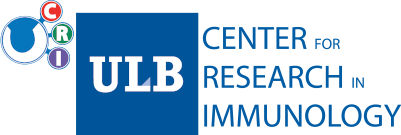Shaping of long-term innate immunity by viral infections : lessons from gammaherpesviruses
Symbiotic and pathogenic microbes are major environmental factors that play fundamental roles in shaping host immunity. Such dynamic interactions between commensals or pathogens and the host must be finely regulated to balance protective immune responses and induction of regulatory pathways. While frequently underestimated, immune imprinting by viruses is a key determinant for variation in disease susceptibility. Numerous evidence shows that history of infections trains the innate immune system for the long term. Gammaherpesviruses (γHVs) represent highly prevalent human viruses as the best studied γHVs, Epstein-Barr virus and the Kaposi's Sarcoma-associated Herpesvirus, infect respectively some 90% and up to 40% of human populations. In most cases, these persistent infections remain asymptomatic or associated with only mild-symptoms. This indicates that γHVs could develop some immunomodulatory mechanisms dampening deleterious host immune responses. Such understanding is of major importance, as mechanisms underlying detrimental inflammation triggered by highly pathogenic respiratory viruses are not well elucidated yet. In this work, we used Murid gammaherpesvirus 4 (MuHV-4), inducing a pulmonary infection in mice, to decipher the immunomodulatory mechanisms elicited during γHV infection. In particular, we explored the role of recruited monocytes and monocyte-derived cells to control the immune response raised against the MuHV-4 itself, but also against lung heterologous challenges such as allergic asthma or viral superinfection. Moreover, while the current paradigm states that monocyte fate and function are driven by the local microenvironment, we also investigated the existence of a central imprinting of these recruited monocytes in the bone marrow. More precisely, we addressed the role of bone marrow CD169+ macrophages in the early education of monocytes and progenitors of monocytes during viral infection. This research could provide key elements to explain inter-individual disease susceptibility and to understand the long-term training of innate immunity after viral infection.
FNRS-Chercheur qualifié (2020) Études universitaires : Médecine vétérinaire (ULiège). Thèse : « Étude du gène Bo10 de l’herpèsvirus bovin 4 » (ULiège). Bourses et mandats : Chargée de recherches FNRS (ULiège), Post-doctorante (Centre d’immunologie de Marseille-Luminy), Chercheuse post-doctorale (ULiège), ERC Starting Grant VIROME. Prix et récompenses : Prix Eugène Yourassowsky (2012), Prix de la Fondation Dehay (2015), Prix Astrazeneca de la Fondation Léon Frédéricq (2018), Prix D. et M. Jaumain (2018).
Friday, November 13th, 2020 from 11:00 AM to 12:00 PM
Albert Claude Auditorium (Point Centre)
9 Avenue Georges Lemaître
6041 Gosselies (Belgium)
